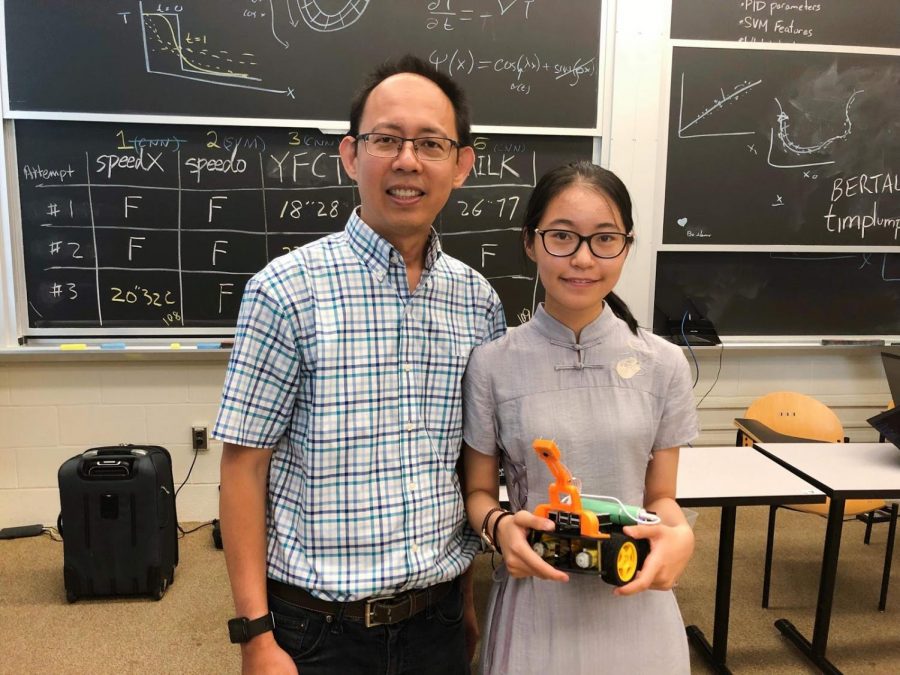Future scientist shoots for the stars
Through building a self-driving car and designing a new type of facial recognition, senior Devany Du has found her calling in physics and has been accepted into MIT where she will major in that field.
Du found her way into the world of physics through neuroscience. In the summer of her sophomore year, the alumna attended a guided research camp at Carleton College. The camp offered courses in neuroscience and astrophysics.
“I came back for physics and it was really like finding true love,” Du said.
Following her newfound passion for physics, Du attended a physics camp at MIT through a connection with one of her friends in the summer of her junior year. After submitting her application and passing a small entrance exam, Du was accepted into the camp. In this camp, Du was given the opportunity to build her own self-driving car. The senior said she was able to make the car identify and respond to stop signs, hiked signs, curves and straight roads.
After learning how to use facial recognition code in a camp hosted by Tsinghua XLab, Du entered into a competition in which she utilized her newfound abilities to identify lost children, a major issue in China. Du said she was able to make her own product design, a wrist band, and was successful in making the code and building a cost-efficient design. This earned her first place in the competition.
Her design was proven to be effective through an experiment when a child and their guardian each were wearing the wristband. When the child attempted to leave the building without their guardian or was farther than 15 meters from them, both their wristbands would start buzzing. Du said she tried to build the wristband so that it was successful in multiple scenarios.
In another tested scenario, a kidnapper attempted to take a child. Once the child reached the main entrance, an alarm went go off, making it clear to other customers that the child was being kidnapped. If the kidnapper tries to take off a child’s wristband, the electromagnetic lock within it triggers another alarm once it is broken. The only way a child could leave a building without setting off an alarm requires a scan of their guardians’ face.
Du also attended a satellite camp for the China Academy of Space Technology, the Chinese space agency and main spacecraft development and production facility for in the country. Du said the camp taught her how to use SystemsToolKit, a software that aided her in measuring the trajectory needed for her moon-landing satellite.
The software also revealed more about the job of a NASA scientist to Du, furthering her interest in physics and the path to becoming a scientist.
Du feels lucky to have been accepted into MIT.
“I think a lot of qualified people at our school didn’t get in and I’m lucky, to be fair,” Du said.
Your donation will support the student journalists of Diamond Bar High School. Your contribution will allow us to purchase equipment and cover our annual website hosting costs.









